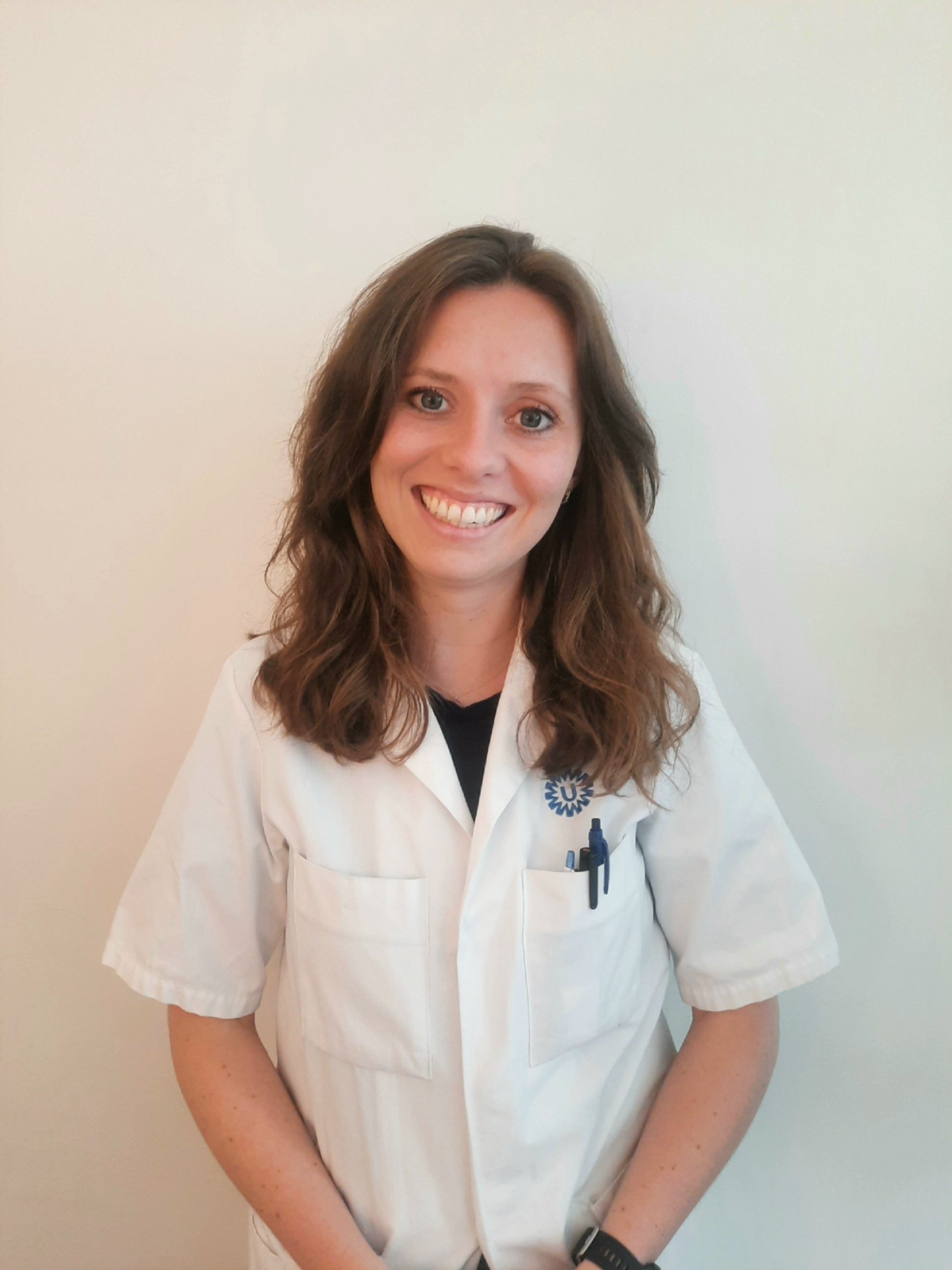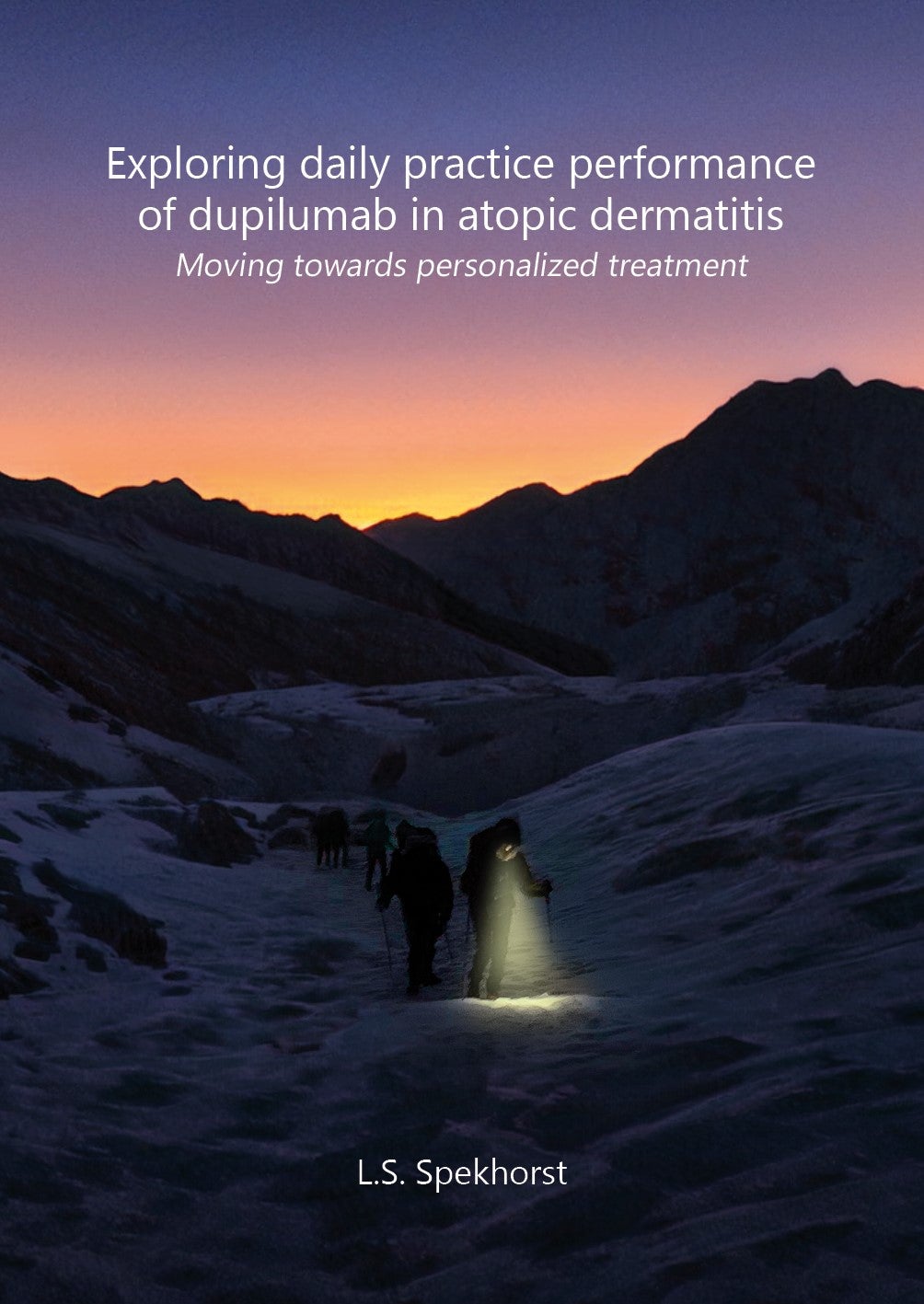Treatment with the monoclonal antibody dupilumab shows long-term effectiveness and tolerability in a daily practice study in patients with moderate-to-severe atopic dermatitis. In addition, many patients could reduce the dosis while maintaining controlled disease, as was concluded by Lotte Spekhorst (UMC Utrecht) who defended her PhD thesis on November 21 at Utrecht University.
Atopic dermatitis (AD) is a common chronic inflammatory skin condition with a global impact. It is a complex disorder, and not every patient responds the same way to the same treatment. Hence, there is a growing demand for more personalized treatment strategies.
Dupilumab, a fully human monoclonal antibody targeting the IL-4 receptor, thereby blocking the IL-4 and IL-13 pathway, was the first antibody-based treatment that has been approved for treatment of moderate-to-severe AD. Its effectiveness and safety were demonstrated in large-scale clinical trials. Despite the high quality of these clinical trial, the results are not always generizable to daily practice. Therefore, there is a need for better understanding of real-world conditions to comprehend the full benefits and drawbacks of such treatment in diverse patient populations.
The PhD thesis of Lotte Spekhorst (Department of Dermatology & Allergology, UMC Utrecht) aimed to evaluate the long-term performance of dupilumab and optimize treatment for individual patients by using real-life data derived from the BioDay registry. This registry – coordinated by UMC Utrecht and UMC Groningen – contains data from over 1.750 patients from 18 hospitals with AD that have been treated with advanced targeted therapies in the Netherlands in daily practice since 2017.
From Lotte’s analyses it appeared that a significant portion of AD patients perceived their eczema as controlled during 16 to 52 weeks of dupilumab use, and treatment satisfaction was high in real-world practice. Compared to conventional immunosuppressants (methotrexate (MTX) and cyclosporin A (CsA)), dupilumab showed a superior 2-year ‘drug survival’ (measuring the length of time until discontinuation of a drug). Only few patients discontinued dupilumab due to treatment failure, whereas half of the patients stopped CsA and MTX due to ineffectiveness or side effects.
Regarding personalized AD treatment with dupilumab, a significant proportion of patients with well-controlled disease could reduce their dosage after 52 weeks of treatment, with both disease activity and disease severity-related biomarkers remaining low. In this population, dose reduction was successful in 83 percent of patients and resulted in substantial cost savings: in total, 401 patients tapered dupilumab with an estimated cost saving of almost € 4 million in the period between January 2019 and June 2022. Finally, dupilumab also had a positive impact on comorbidities such as asthma and food allergies.
Lotte Spekhorst concludes: “The introduction of dupilumab has led to a major advancement in the treatment of AD, with a meaningful improvement of the quality of life for most patients. Our research, condensed in my PhD thesis, offers insights into the safety and effectiveness of dupilumab in daily practice, along with opportunities to adjust dosages and consider comorbid conditions like asthma and food allergies.”
Atopic dermatitis is one of the most common chronic inflammatory skin diseases worldwide, with a prevalence of up to 25-30 percent in children and up to 10 percent in adults in developed countries. AD is characterized by itchy, red, swollen and ‘cracked’ skin, resulting in persistent pruritus, pain, sleep disturbances, anxiety and depression. These symptoms may lead to a profound impairment of quality of life. The etiology of AD is multifactorial, involving an interaction between genetic, immunological and environmental factors. According to the National Institute of Public Health and the Environment (RIVM), nearly 400,000 people in the Netherlands suffer from AD with an extimated healthcare cost of € 150 million per year. The Department of Dermatology and Allergology at UMC Utrecht has been assigned as the National Expertise Center for Atopic Dermatitis by the Dutch Federation of University Medical Centers.
Lotte Spekhorst (1992, Hengelo) defended her PhD thesis on November 21, 2023 at Utrecht University. The title of her thesis was “Exploring daily practice performance of dupilumab in atopic dermatitis – Moving towards personalized treatment.” Supervisor was prof. Marjolein de Bruin-Weller MD PhD (Department of Dermatology & Allergology, UMC Utrecht). Co-supervisors were Marlies de Graaf MD PhD and Daphne Bakker MD PhD (both Department of Dermatology & Allergology, UMC Utrecht). Lotte works as a physician at the emergency department and surgery department at Gelderse Vallei Hospital in Ede. In 2024, Lotte Spekhorst will start her training in forensic medicine.


